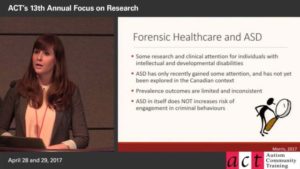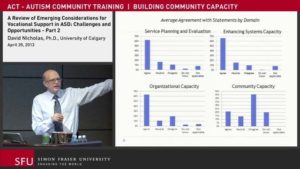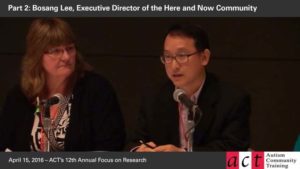Filmed April 2017 – edited into 3 parts; total 32 minutes
Christopher Gillberg, MD, PhD
Professor of Child and Adolescent Psychiatry at the University of Gothenburg, Sweden
Director, Gillberg Neuropsychiatry Centre, University of Gothenburg
Presentation Description
The onset of eating disorders, which tend to affect girls and women rather than boys and men, usually begins in puberty or early adult life, but in many cases it has been preceded by early onset neurodevelopmental problems, including ASD and ADHD (ASD in anorexia nervosa, ADHD in bulimia nervosa). The neurodevelopmental difficulties have usually not been properly diagnosed before the appearance of the eating disorder; the slightly different clinical presentation in females and the general public/professional perceptions of ASD and ADHD contribute to this state of affairs.
Professor Gillberg is a world renowned autism researcher who has developed the concept of ESSENCE (Early Symptomatic Syndromes Eliciting Neurodevelopmental Clinical Examinations), recognizing the overlapping symptoms of ASD, ADHD, Oppositional Defiant Disorder/Conduct Disorder (ODD/CD), anorexia nervosa and other eating disorders, intellectual developmental disorder, communication disorders, dyslexia, epilepsy, cerebral palsy and others.
This presentation was preceded by Dr. Gillberg’s lecture, also available at Autism Videos @ ACT: ESSENCE* – Early Recognition of ASD and Associated Disorders Can Lead to Better Outcomes
Also available is Practical Strategies for Supporting Mental Wellness of Teenage Girls and Women with ASD, a presentation by Dori Zener, MSW, RSW.
These presentations were recorded in 2017 at ACT’s 13th Annual Focus on Research Conference, held at Simon Fraser University in Vancouver, British Columbia. ACT appreciates Dr. Gillberg’s generosity in allowing us to include it in Autism Videos @ ACT.
Learning Objectives
- Recognize symptoms of ASD and ADHD in eating disorders.
- Understand how ASD and ADHD contribute to the eating disorder.
- Analyze how, in the individual case, ASD and/or ADHD should best be diagnosed and intervened for and how this will affect outcome in the longer term.
Christop
Visit Dr. Gillberg’s blog. Christopher Gillberg and his team of experts offer their opinions each week on the latest happenings in the world of neuropsychiatry and mental health (ESSENCE).
Part 1: Introduction
Part 2: Autism in Anorexia Nervosa and Eating Disorders
Part 3: Why are Females with Autism missed?
How should we plan for best recognition and intervention in autism and other ESSENCE in females?






